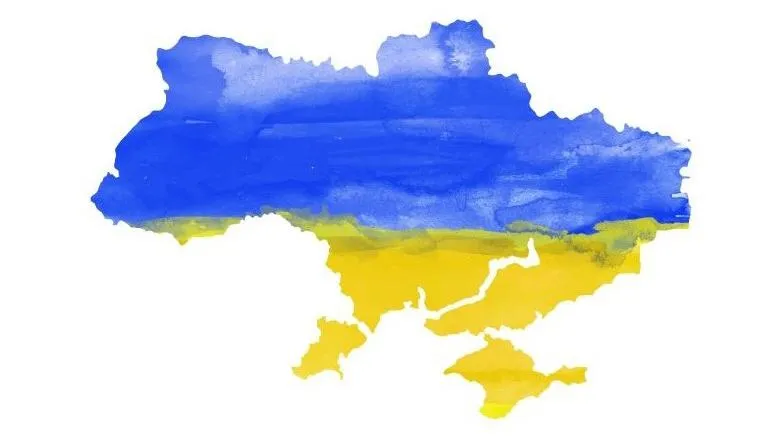Viktoriya Kukovenkova offered the language course alongside a range of resources available to people hosting refugees through King’s University Sponsorship Model to implement the Government’s Homes for Ukraine scheme. The model is an initiative of the King’s Sanctuary Programme which focuses on responding to the global issue of forced displacement.
Taught over 10 weeks between October 2022 and January 2023, Viktoriya’s course covered fundamentals of the Ukrainian language and simple day-to-day words and phrases. Learning was designed to help hosts communicate sensitively and in a friendly way to people who’ve experienced the trauma of fleeing their homes, their everyday lives and arrived in a new country to build a life here.
Participants included people hosting or preparing to host people forcefully displaced from Ukraine and the staff running the University Sponsorship Model who were in touch with Ukrainians looking to find shelter in the UK.
The course was developed by Viktoriya, a teacher in the King’s Language Centre and a Ukrainian herself. It evolved from workshops she’d been running earlier in the year to introduce people to Ukrainian culture, heritage and language. Her work was supported by Tanya Linaker, her Team Leader and Catherine Brossard, a Deputy Director at the Centre.
‘I’ve been teaching Russian language in the UK ever since I moved to London in 2006 and there had been very little demand for studying Ukrainian language.’ Viktoriya explains, ‘that all changed when Russia invaded Ukraine and people quickly developed a huge interest in my country.’
Viktoriya’s teaching has always been underpinned by a strong cultural dimension and her workshops not only introduced the Ukrainian language, but the culture and heritage as well. Participants came away with the grounding to continue learning more Ukrainian, along with some understanding of its cultural and historical context.
Shortly after, and as a result of these workshops, a 10-week language course was created and offered to people involved in hosting through the Sponsorship Model. Viktoriya felt strongly the course needed to be welcoming and compassionate as well as practical.
Lessons covered language fundamentals such as the Ukrainian alphabet, a Cyrillic system of letters different to Latin alphabet used for many European languages, including English. Participants learned how to say first interactions and everyday phrases in Ukrainian, such as hello and goodbye (Привіт! and До побачення); how are you today? (Як справи сьогодні?); more tea or coffee? (Ще кави або чаю?) Learners were also taught how to recognise sounds of a Cyrillic-based language, to help listening and gain some understanding things being said in Ukrainian.
Lessons were 90-minutes and taught online once a week in the evening. Viktoriya was mindful people may be learning after a full day’s work, ‘so I was careful to take learners through lessons at a pace they were comfortable with and able to participate in more easily at the end of the day.’
Since the course concluded earlier this year, participants have been in touch with Viktoriya to thank her and to share how they’d found it helpful. Being able to use small phrases and words in Ukrainian has helped hosts make their guests feel more at ease and create a rapport between them. Although some found learning a completely new language with a different alphabet challenging, they found Viktoriya’s gentle and patient approach was extra helpful when learning at the end of a long day.
Reflecting on her experience, Viktoriya says: ‘I hope the course cemented for participants the commitment they’ve made to helping others in such a significant way. And perhaps their experience might encourage others to help house a refugee student or academic from Ukraine if they can.’
Viktoriya hopes to run another similar course in future and for it to be available to more people. Places are available for her next Introduction to Ukraine's Cultural Heritage & Language workshop on 7 March. Shortly after the workshop on the same date, King’s Films for Ukraine season will be screening Invisible Battalion, providing an immersive evening of Ukrainian language, history and culture.
About King’s Sanctuary Programme University Sponsorship Model
Since March 2022, the King’s Sanctuary Programme Team has worked with Citizens UK, Ukrainian Sponsorship Pathway UK (USPUK) and three other universities to lead the development and delivery of the University Sponsorship Model that enables the higher education sector to best implement the Government’s Homes for Ukraine scheme and help displaced students and academics to keep engaged with their studies and research. As part of this model, members of the King’s community have hosted individuals impacted by the war in Ukraine and helped them to settle in the UK. We are incredibly grateful to those of you who have supported those in need. As the conflict continues, we are looking for more people to sign up as hosts.



